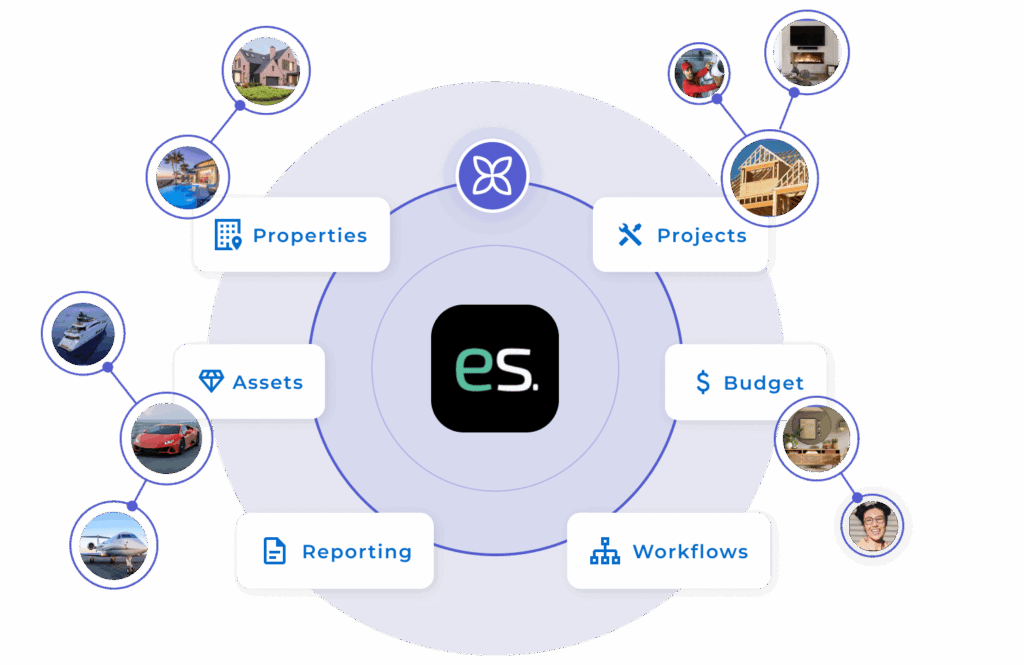The private service management industry stands at a transformational crossroads. Over the past two years, significant changes have fundamentally altered how high-net-worth families interact with their properties, staff, and service providers. Therefore, for private service management professionals—from estate managers and household staff to personal assistants and family office coordinators—understanding these shifts isn’t just beneficial; it’s essential for career advancement and professional excellence.
Meanwhile, the luxury service landscape has evolved beyond traditional boundaries. Whereas families once relied entirely on in-person oversight, they now expect seamless digital integration. Similarly, staff who previously managed operations through informal communication now require systematic protocols. Consequently, private service management professionals who adapt to these changes will distinguish themselves as strategic partners rather than operational administrators.
The New Reality of Private Service Management Operations
Today’s private service management professionals navigate complexity that extends far beyond traditional household management. Furthermore, you’re coordinating multi-property operations, managing remote work arrangements, overseeing construction projects, and maintaining service excellence across diverse family needs—all while preserving the discretion and personal touch that defines luxury service.
Geographic Dispersion has become the norm, with families maintaining multiple residences and expecting consistent service standards across all locations
Technology Integration now influences every aspect of operations, from security systems and home automation to communication protocols and vendor management
Multigenerational Preferences require balancing traditional service expectations with younger family members’ digital-first approaches
Vendor Ecosystem Complexity has expanded exponentially, requiring sophisticated coordination between construction teams, maintenance providers, and specialized service contractors
Documentation Standards have shifted from informal arrangements to institutional-grade record-keeping that supports succession planning and operational continuity
Ultimately, these changes represent more than operational adjustments—they signal a fundamental evolution in how private service management excellence is defined and delivered.
Strategic Frameworks for Professional Excellence
Leading private service management professionals are adopting systematic approaches that elevate their role from tactical execution to strategic partnership. However, this transformation requires mastering three critical dimensions:
Operational Excellence Through Systems Thinking
Moving beyond reactive problem-solving to proactive service delivery requires systematic approaches to common challenges. For instance, when families undertake major renovations or relocations, private service professionals must orchestrate multiple moving parts while maintaining service continuity.
For example, consider the complexity of managing a family through a complete estate renovation while maintaining full household operations at a temporary residence. Indeed, this scenario demands systematic project management, vendor coordination, and family communication protocols that go far beyond traditional household management skills.
Documentation Excellence becomes crucial for maintaining service quality across transitions, ensuring that preferences, protocols, and vendor relationships transfer seamlessly between properties and projects
Communication Systems must support multiple stakeholders—family members, construction teams, household staff, and service providers—while maintaining appropriate confidentiality and professional boundaries
Quality Assurance Protocols ensure that service standards remain consistent despite changing circumstances, temporary arrangements, and new vendor relationships
Technology as Strategic Enabler
The most successful private service management professionals view technology not as a replacement for personal service, but rather as an amplifier of their capabilities. Additionally, digital tools enable deeper client relationships by eliminating routine administrative tasks and providing predictive insights that anticipate needs.
Predictive Service Delivery uses data patterns to anticipate family needs, seasonal requirements, and maintenance schedules before issues arise
Integrated Vendor Management streamlines coordination across multiple service providers while maintaining performance standards and relationship continuity
Real-Time Visibility enables proactive communication with families, providing updates and insights that demonstrate sophisticated oversight
Knowledge Preservation ensures that service preferences, vendor relationships, and operational knowledge transfers seamlessly between staff members and across generational transitions
Client Partnership Evolution
The highest-performing private service management professionals position themselves as strategic partners who contribute to family objectives beyond basic household operations. As a result, this requires understanding broader family goals and aligning service delivery to support those outcomes.
Asset Stewardship involves protecting and enhancing property values through proactive maintenance, strategic vendor relationships, and long-term planning
Lifestyle Optimization means understanding how service delivery impacts family productivity, satisfaction, and overall quality of life
Succession Planning Support includes maintaining documentation and systems that facilitate smooth transitions during staff changes or generational wealth transfer
Risk Management encompasses identifying potential service disruptions, vendor issues, or operational challenges before they impact family satisfaction
Industry Trends Shaping Private Service Management Development
Several key trends are reshaping career trajectories for private service management professionals:
Professionalization of Roles has elevated expectations for formal training, systematic approaches, and measurable performance outcomes
Specialization Opportunities are emerging in areas like project management, technology integration, and multi-property coordination
Career Advancement Pathways now include progression from household-specific roles to portfolio management and family office integration
Continuing Education Requirements reflect the increasing complexity of modern private service roles and the need for ongoing skill development
Professional Network Development has become essential for accessing specialized resources, vendor recommendations, and career opportunities
How EstateSpace Empowers Private Service Excellence
Recognizing these industry transformations, EstateSpace was purpose-built to support private service professionals in delivering institutional-grade service while advancing their careers. Furthermore, our platform addresses the core challenges that distinguish exceptional private service delivery:
Elevating Professional Capabilities
Systematic Documentation Excellence: EstateSpace centralizes all estate records, vendor contracts, family preferences, and operational protocols in one secure platform. As a result, this eliminates the scattered spreadsheets and email chains that create service gaps, enabling private service professionals to demonstrate sophisticated oversight that rivals financial asset management standards.
Proactive Service Delivery: AI-powered insights help anticipate family needs, maintenance requirements, and seasonal preparations before issues arise. Furthermore, private service professionals using EstateSpace report 60% reduction in reactive problem-solving, allowing more time for strategic relationship building and service enhancement.
Professional Communication Tools: Integrated messaging and reporting features maintain appropriate confidentiality while ensuring transparent stakeholder communication. Additionally, generate executive-level reports that demonstrate value creation and strategic thinking—essential for career advancement in family office environments.

Supporting Career Development
Performance Analytics: Track service delivery metrics, vendor management effectiveness, and operational efficiency improvements. These measurable outcomes support performance reviews, salary negotiations, and career advancement discussions with quantifiable evidence of professional excellence.
Knowledge Management Systems: Preserve institutional knowledge about family preferences, vendor relationships, and operational protocols. This documentation capability positions private service professionals as indispensable strategic partners rather than replaceable staff members.
Cross-Property Coordination: Manage multiple residences, renovation projects, and seasonal transitions through unified workflows. This portfolio management capability demonstrates the sophisticated operational skills that command premium compensation and leadership opportunities.
Delivering Client Value
Institutional-Grade Oversight: Provide the same level of transparency and control for physical assets that families expect from their financial portfolios. This alignment positions private service professionals as equals to other trusted advisors in the family’s professional network.
Cost Optimization: Reduce administrative overhead by 33% while extending asset lifecycles through predictive maintenance and strategic vendor management. These financial benefits directly support private service professionals in justifying premium service fees and expanded responsibilities.
Succession Planning Support: Maintain comprehensive documentation that facilitates smooth transitions during staff changes or generational wealth transfer. This forward-thinking approach demonstrates strategic value that extends beyond day-to-day operations.
Future-Proofing Your Private Service Management Career
The most successful private service management professionals are those who anticipate future requirements and develop capabilities ahead of industry demand. Specifically, this requires strategic thinking about skill development, technology adoption, and professional positioning.
Develop Systems Expertise by mastering project management methodologies, vendor coordination protocols, and performance measurement frameworks
Embrace Technology Integration while maintaining the personal touch that defines excellence in private service delivery
Build Strategic Relationships across the vendor ecosystem, professional networks, and family office communities
Document and Share Knowledge to establish thought leadership and demonstrate sophisticated operational understanding
Pursue Continuous Learning through industry associations, specialized training programs, and cross-functional skill development
In conclusion, the private service management industry’s evolution presents unprecedented opportunities for professionals who embrace change while preserving the excellence standards that define luxury service. Moreover, those who master this balance will not only advance their careers but also set new standards for the entire industry.
For private service management professionals managing complex renovation projects, understanding how integrated systems support construction-to-maintenance transitions becomes increasingly valuable as families invest in property improvements and expect seamless operational continuity.
The future belongs to private service management professionals who combine traditional excellence with modern capabilities.
By adopting systematic approaches, leveraging technology strategically, and positioning themselves as strategic partners, today’s private service management professionals can shape the industry’s evolution while advancing their own careers.
Ready to elevate your private service capabilities and establish thought leadership in luxury operations?
Connect with Our Team to explore how advanced platforms support professional excellence in private service delivery.



